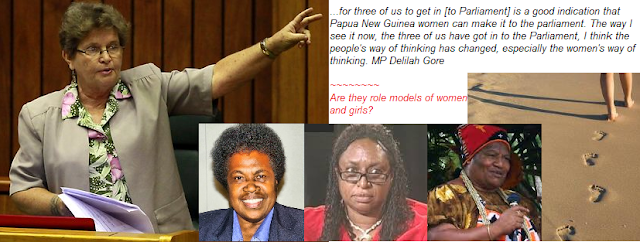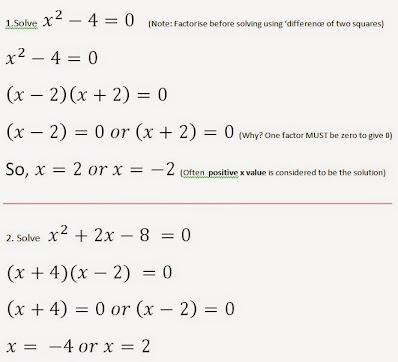The UK government plans to create a body called
regional school commissioners who will
have powers to siege control from school identified as ‘failing’ by school
inspection body Ofsted.
The Independent newspaper opening headlines read ‘
Government-appointed officials to
remove governors and head teachers in failing schools….’ (18/10/2014). Under
their control they will send 1500 ‘super teachers’ into struggling classrooms
in an effort to boost students’ performance and improve schools’ ranking.
The whole idea was to challenge school governors, principals
and deputy principals to pull-their-socks-up.
Lae city schools have senior education officers who have
been sitting at the principal’s seats with years of experience. Some even feel
as if they are irreplaceable. It is time Morobe Provincial Government comes up
with a plan to challenge principals and deputy principals of troubled schools
within the city.
This is not only about fighting against schools fights. It
is also about improving schools’ academic performance - about improving ranking of
Lae city schools.
So, if school governors and admins need motivation it must
come from Morobe Provincial Government. The Government must take ownership of
the schools in the province and step on the administration toes – show them who
is in charge here.
Running a city school is not an easy task. This is clear
from the onset, no one can deny it. But, governors and head teachers should be the
force that drives a positive change, instead of being complacent. Why occupy a
position in the admin when schools academic results are failing? Why doing the
same thing over again when it didn’t work the first time?
In fact, school governance
must be based on systematic and workable guidelines - the school policies. Most
schools do have all the policies that Education Department wants of them. These policies
are cut and paste from national department’s documents with limited or no
effect at school level. By this I mean, every school should look at ways to
refine their policies to meet their needs.
What must school
administrators do to improve school performance?
Drop in the number of Lae secondary school students going to tertiary institutions in successive years showed that there was urgent need to seriously
reconsider the way things are done. Take a look at these as examples. Call it Guides For Principals Of All Schools In Lae
City.
1. Selecting Students – Begin With a Good
School Culture
I pointed out in my first article one of
the ways
students join generation groups is determined by the part of city they
come from. Targeting feeder schools can be an effective way to create good
school atmosphere and stop students fights on the streets.
If negative students’ culture begins at primary
school, school admin should re-think the traditional selection process. Instead of
accepting students from the mainline schools, they should take students from
outside the city.
Take for instance, city secondary schools
should offer privileged places for students from remote schools like Menyamya, Wasu,
Salamaua, Dregahafen, etc. All the boarding spaces should be awarded to these students
with certain conditions attached. If it means expanding boarding space to 70%
boarding and 30% day, it must be spearheaded by the Government to see a change.
Day students must also have conditions
attested to their spaces. For example, parents must be from the working class or
earning a certain amount of money in wage or salary, students must be living with a
parent/s, students must be dropped off and picked up etc.
These are hints and examples for
controlling enrolment and ensuring quality of students are maintained during
selection of students.
(*Principals, you cannot stop students when
they are fighting and killing each other at Eriku but you can stop it from
happening)
2. School Behaviour Policy – the code of conduct
This policy governs students’ ethos in
classroom and around school. It is the code of conduct. They must be taught the
requirements of being a student in a city school on day one: uniform,
appearance, conduct, respect for teachers, respect for fellow students, respect
for the public, etc.
The reason why a policy on code of conduct
is important is that it neutralises bad behaviour students may have inherited
from outside. When students come into a school they MUST pick up the school’s way
of doing things, practice it and perfect it before they leave. This is how
school influence students and prepare them to face the World.
One way to effectively implement such
policy is to actually police it. That means that principals should know how to monitor
students; they should know how to stop bad behaviour repeating; they should
also know how to stop bad behaviour from spreading.
If it means doing random blood test on
students to check for presence of illegal substance, by all means, school must
do it. If it means suspending 25 students for the sake of 100, principals must
take this bold step.
Perhaps the most important thing is to
monitor, curtail and contain bad behaviour within schools.
(*Principals, you can create a way to neutralise
bad students’ behaviour by putting in place a clear code where every student
can follow from day one).
3. School Disciplinary Policy – The Penalty
Disciplinary policy edges on the action school
administration (including BoG) takes when a student has bridged School Behaviour
Policy. This outlines what penalty one would have faced.
I clearly outline the
step in taking disciplinary action in my third article and mentioned termination should always be considered as the
last resort. Every opportunity has to be given to correct bad behaviours before
this final action is taken.
In regards to Lae schools, a clear message
has to go out to parents. They have to be made to sign a declaration to protect
their child/ren. This means that parents have to agree with school’s code of conduct (School Behaviour Policy). By doing this parents agree to let school monitor and correct any behaviour contrary to schools' best practice.
END: Board of Governors
and school administrators in Lae city schools MUST think about how to improve their
school’s performance. Start fighting bad student behaviours. Create workable school
policies to encourage good behaviour. This is a big challenge for all the
principals and deputy principals in Lae city schools.
~~~~~~~~~~~~~~~~~~~~~~~
I will give a summary of articles (i) - (iv) in my final post.
 Speaking about a variety of issues within the education sector, the secretary told participants, especially provincial education officers, to work with him to implement policies.
Speaking about a variety of issues within the education sector, the secretary told participants, especially provincial education officers, to work with him to implement policies.





















